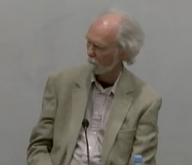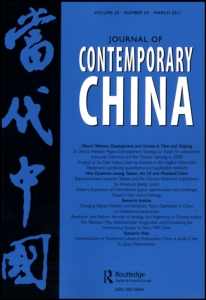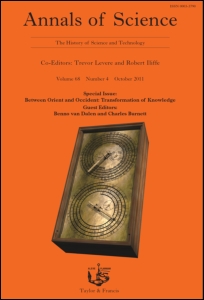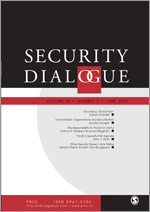
In its most common sense, methodology is the study of research methods. However, the term can also refer to the methods themselves or to the philosophical discussion of associated background assumptions. A method is a structured procedure for bringing about a certain goal, like acquiring knowledge or verifying knowledge claims. This normally involves various steps, like choosing a sample, collecting data from this sample, and interpreting the data. The study of methods concerns a detailed description and analysis of these processes. It includes evaluative aspects by comparing different methods. This way, it is assessed what advantages and disadvantages they have and for what research goals they may be used. These descriptions and evaluations depend on philosophical background assumptions. Examples are how to conceptualize the studied phenomena and what constitutes evidence for or against them. When understood in the widest sense, methodology also includes the discussion of these more abstract issues.

Isis is a quarterly peer-reviewed academic journal published by the University of Chicago Press. It covers the history of science, history of medicine, and the history of technology, as well as their cultural influences. It contains original research articles and extensive book reviews and review essays. Furthermore, sections devoted to one particular topic are published in each issue in open access. These sections consist of the Focus section, the Viewpoint section and the Second Look section.

Barry Gordon Buzan, FBA, FAcSS is a British political scientist. He is an Emeritus Professor of International Relations at the London School of Economics and a honorary professor at the University of Copenhagen and Jilin University. Until 2012 he was Montague Burton Professor of International Relations at the LSE. Buzan sketched the Regional Security Complex Theory and is therefore together with Ole Wæver a central figure of the Copenhagen School.
Securitization in international relations and national politics is the process of state actors transforming subjects from regular political issues into matters of "security": thus enabling extraordinary means to be used in the name of security. Issues that become securitized do not necessarily represent issues that are essential to the objective survival of a state, but rather represent issues where someone was successful in constructing an issue into an existential problem.

The Journal of Personality and Social Psychology is a monthly peer-reviewed scientific journal published by the American Psychological Association that was established in 1965. It covers the fields of social and personality psychology. The editors-in-chief are Shinobu Kitayama, Colin Wayne Leach, and Richard E. Lucas.
The Copenhagen School of security studies is a school of academic thought with its origins in international relations theorist Barry Buzan's book People, States and Fear: The National Security Problem in International Relations, first published in 1983. The Copenhagen School places particular emphasis on the non-military aspects of security, representing a shift away from traditional security studies. Theorists associated with the school include Buzan, Ole Wæver, and Jaap de Wilde. Many of the school's members worked at the Copenhagen Peace Research Institute, from which its name originates.
Culture, Medicine and Psychiatry is a cross-cultural peer-reviewed medical journal published quarterly by Springer Science+Business Media.
Communication Education is a peer-reviewed publication of the National Communication Association published by Taylor & Francis. Communication Education publishes original scholarships that advance understanding of the role of communication in the teaching and learning process in diverse spaces, structures, and interactions, within and outside of academia. Communication Education welcomes scholarships from diverse perspectives and methodologies, including quantitative, qualitative, and critical/textual approaches. All submissions must be methodologically rigorous and theoretically grounded and geared toward advancing knowledge production in communication, teaching, and learning.

Security: A New Framework for Analysis is a book by Barry Buzan, Ole Wæver and Jaap de Wilde. It is considered to be the leading text outlining the views of the Copenhagen School of security studies. The work addresses two important conceptual developments: Buzan's notion of sectoral analysis and Ole Wæver's concept of 'securitization'. The book argues for an intersubjective understanding of security and that our understanding of security should be widened to include issues such as environmental security and threats to identity.
Societal security is a concept developed by the Copenhagen School of security studies that focuses on the ability of a society to persist in its essential character. It was developed in 1990s in the context of the end of the Cold War and moves towards further integration in the European Union. This paradigm de-emphasizes the role of state power in guaranteeing security by confronting threats, highlighting instead questions of community identity and social dynamics.

School Psychology International is a bimonthly peer-reviewed academic journal that highlights the concerns of those who provide quality mental health, educational, therapeutic, and support services to schools and their communities throughout the world. It offers peer-reviewed articles reflecting high quality academic research in the field as well as examples of proven best practice. This journal is a member of the Committee on Publication Ethics (COPE). The journal was established in 1979 and is currently published by SAGE Publications.
International political sociology (IPS) is an interdisciplinary field and set of approaches at the crossroads of international relations theory and other disciplines such as sociology, geography and anthropology. It is structured around initiatives such as the journal International Political Sociology and the network Doingips, as well as scholars such as Didier Bigo, Anastassia Tsoukala, Ayse Ceyhan or Elspeth Guild.

Feminist security studies is a subdiscipline of security studies that draws attention to gendered dimensions of security.

The Journal of Contemporary China is a multidisciplinary peer-reviewed academic journal on contemporary Chinese affairs. It is published five times per year by Routledge and covers issues such as Chinese politics, law, economy, culture, and foreign policy, among others. It is purported to be the only English-language journal edited in North America that provides exclusive information about contemporary Chinese affairs for scholars, business people and government policy-makers.

Annals of Science is a peer-reviewed academic journal covering the history of science and technology. It is published by Taylor & Francis and was established in 1936. The founding editor-in-chief was the Canadian historian of science Harcourt Brown.

The Journal of Clinical Pharmacology is a peer-reviewed medical journal that covers the field of pharmacology. The editor-in-chief is Joseph S. Bertino, Jr.. It was established in 1961 and is currently published by John Wiley & Sons in association with the American College of Clinical Pharmacology.
Terrorism and Political Violence is a peer-reviewed academic journal covering terrorism and counter-terrorism published by Routledge. It was established in 1989 by David C. Rapoport, who remains editor-in-chief. In the editorial manifesto in its first issue, it is referred to as the Journal of Terrorism Research; however, from its first issue until the present, in editorial statements and elsewhere, it is only ever cited as Terrorism and Political Violence.

Climate security is a political and policy framework that looks at the impacts of climate on security. Climate security often refers to the national and international security risks induced, directly or indirectly, by changes in climate patterns. It is a concept that summons the idea that climate-related change amplifies existing risks in society that endangers the security of humans, ecosystems, economy, infrastructure and societies. Climate-related security risks have far-reaching implications for the way the world manages peace and security. Climate actions to adapt and mitigate impacts can also have a negative effect on human security if mishandled.
Richard K. Ashley is a postmodernist scholar of International relations. He is an associate professor at the Arizona State University's School of Politics and Global Studies.

Ethnic Identity and the State in Iran is a 2013 book by Alam Saleh in which the author examines inter-ethnic tension and the politicization of ethnic identity in Iran. He suggests that problems with ethnicity and nationality in Iran, as in other countries of the Middle East, has not been so much the result of ethnic identity formation, but the product of the securitization of ethnic issues. The book has received positive reviews in the Middle East Journal, Review of Middle East Studies, the British Journal of Middle Eastern Studies, and Nations and Nationalism.











